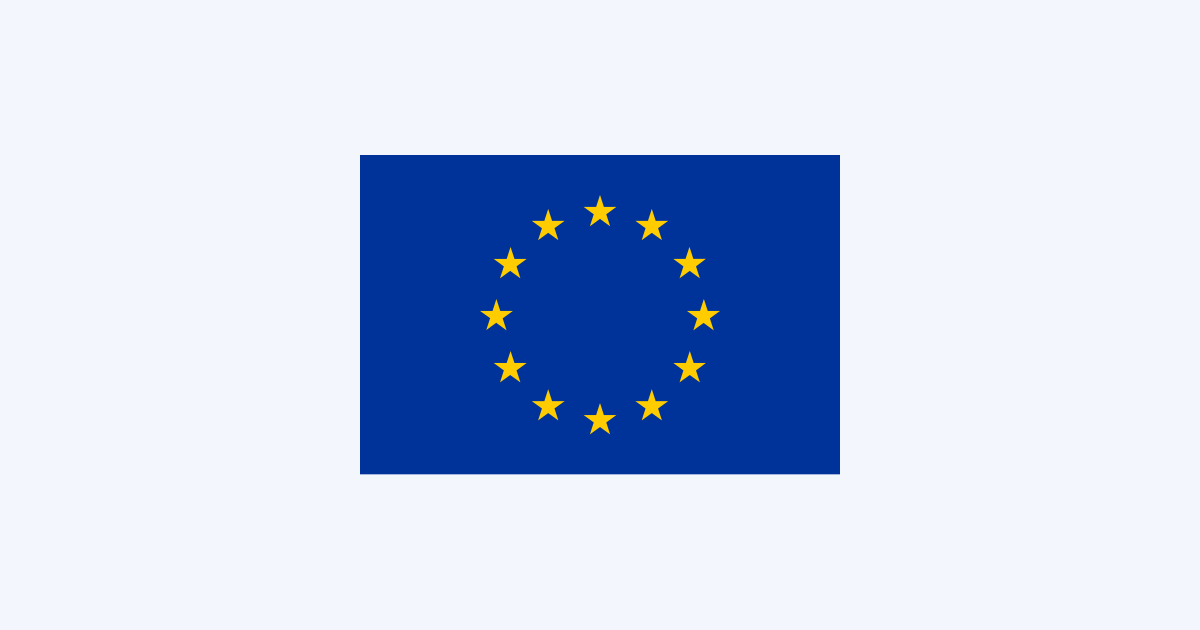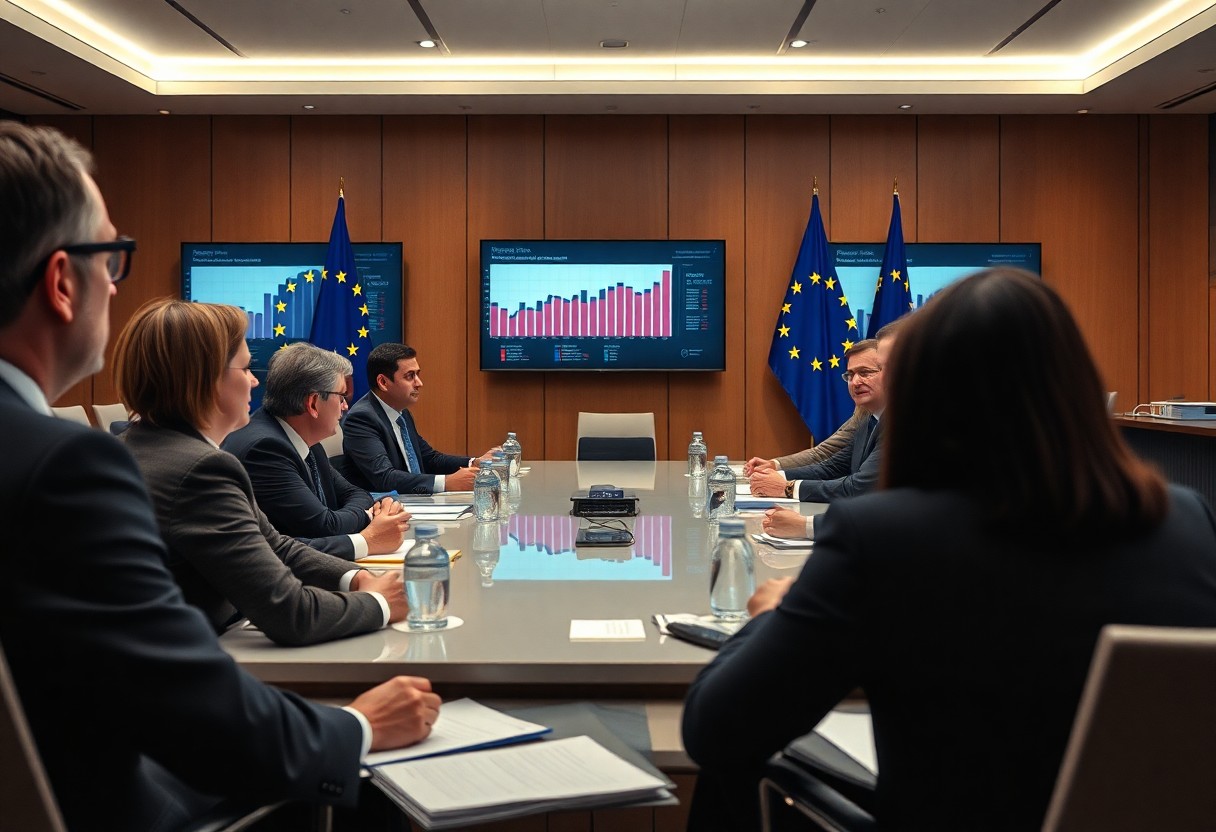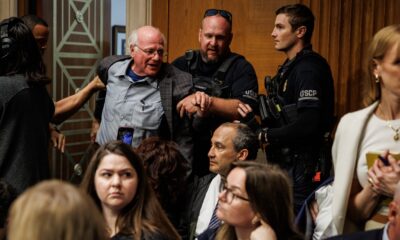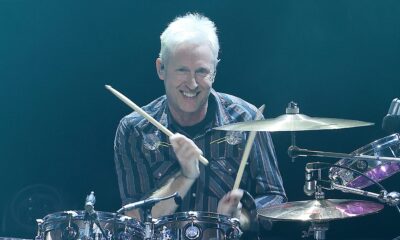Politics
Announcement of the Synod of Bishops of the Serbian Orthodox Church for Kosovo and Metohija
From: Council of Bishops of SOC / 05.20.2023
This year’s regular meeting of the Holy Council of Bishops of the Serbian Orthodox Church paid special attention to the people and the Church in Kosovo and Metohija.
In the past year, dozens of attacks against people, shrines, homes and property of Serbs in Kosovo and Metohija have been registered. The events led to a peaceful but determined protest by the Serbs from the Serbian municipalities in northern Kosovo and Metohija to urge the Kosovo institutions to establish a Union of Serbian Municipalities, in accordance with the agreements already reached and signed with Pristina, under the mediation of the European Union in Brussels, in 2013. and 2015
The Serbian Orthodox Church has always taken the position that all problems in Kosovo and Metohija should be solved peacefully and through dialogue, and that there should always be peaceful coexistence of Serbs, Albanians and all other peoples living in this area. At the meetings of the Holy Synod of Bishops of all past years, our Church has clearly and unequivocally indicated, as it indicated at this year’s session, that the acceptance of the self-proclaimed independence of Kosovo and Metohija directly or indirectly, de facto or de jure, would be contrary to international law based on the UN Charter and other acts and principles of general importance. Such a decision does not have the support of either the UN Security Council or the majority of countries in the world, including five countries from the European Union. It would inevitably lead to a more massive exodus among the Serbian population, would fail the attempts for peaceful coexistence of all, regardless of ethnic origin and faith, as well as the very survival of our people in its centuries-old hearths. Therefore, solutions should be sought only in accordance with principles and rules that are valid for all.
Proof of this is the recent aggressive actions of the authorities in Pristina, directed against the Serbian community and our holy church, which have led to the lowest possible level of relations since 1999. And also adopted decisions that deeply divide the citizens of Kosovo and Metohija, cause unprecedented inter-ethnic tension and regional instability and, in the long run, make life difficult for our people and our Church. It is clear that the goal of the Kosovo institutions is to create an ethnic Albanian Kosovo in which the free and normal life of the Serbs is thwarted.
In this regard, the Church condemns all attacks against the Serbian people, their sanctuaries and property, and especially terrorist armed attacks against individual ethnic Serbs, including children, as well as the existence of secret lists on the basis of which Serbs, even former members of the Kosovo Police. It also condemns the illegal confiscation of land owned by Serbs in order to exert additional pressure to force them to emigrate. The Assembly demands that the perpetrators of these crimes be brought to justice, and that all victims be protected.
The Serbian Orthodox Church is in a particularly difficult situation. This is also confirmed in the statements of international officials and respected institutions that deal with the protection of religious rights and freedoms. Besides the series of attacks against our temples, which hinder the normal process of reconstruction of dozens of our sanctuaries, damaged or destroyed mostly in the period 1999-2004, the life of our monasteries and parishes is very difficult. In many ways, the Albanian authorities in Kosovo have begun to change or reinterpret the previous laws, which included guarantees for the protection of property and economic rights, and which enabled the independence and sustainability of our monasteries. The highest Albanian officials, as a rule, do not accept the real and official name of our church, confirmed by the Kosovo law, nor the provided guarantees. All this threatens to turn into new repressive measures that will further threaten the spiritual mission of the church and the preservation of the identity of the Serbian people in Kosovo and Metohija.
Therefore, the Holy Synod of Bishops especially emphasizes the need to pay the greatest attention to the following issues in Kosovo and Metohija: preserving the identity and church organization of the Serbian Orthodox Church in Kosovo and Metohija, preventing historical revisionism, protecting the property of our Church, creation of conditions for the return of confiscated property, preservation of the conditions that allow the normal functioning of our monasteries and the Rashko-Prizren Diocese as a whole. Currently, many monasteries, churches and families are not economically viable and can survive only with the help of the Serbian Orthodox Church, as well as through donations and with the development of agricultural and other activities that financially ensure the life of our sanctuaries and theology in Prizren.
It is especially emphasized that our church in Kosovo and Metohija needs very active international protection from the discriminatory behavior of Kosovo institutions, stronger guarantees and effective supervision are needed to prevent abuses and arbitrary interpretations of laws in judicial acts, of the circumvention or complete non-observance of the law, which is at the expense of our Church.
The Serbian Orthodox Church has for centuries been the main pillar for our people in Kosovo and Metohija and a major factor in its unity, survival and preservation of national, spiritual and cultural identity. Without the special protection of the Church, the survival of our people would not be possible. That is why the concern for the rights of the Serbian people in Kosovo and Metohija is inseparable from the concern for the protection of the basic rights and needs of the Serbian Orthodox Church, which has been living in extremely difficult conditions for twenty-four years, exposed to attacks and various forms of violations of the basic religious, property, civil and human rights.
Supporting dialogue and peaceful resolution of all issues in Kosovo and Metohija, the Serbian Orthodox Church wants to make its own contribution to the development of inter-ethnic relations and cooperation with other churches and religious communities, and actively participate in creating conditions for a free and safe life of Serbs and Albanians, as well as all religious and national communities in Kosovo and Metohija and everywhere in the world.
Reiterating its position that it is against any exclusion of Kosovo and Metohija from Serbia, the Assembly calls on both Albanians and Serbs to resolve their difficulties in the spirit of tolerance and mutual respect. Since it was God’s will for both peoples to share Kosovo and Metohija, and especially the Albanians who are the majority, they should do everything to achieve maximum mutual tolerance and mutual respect in order to create a normal and better life for every citizen of Kosovo and Metohija. All relationship problems can and should be resolved through dialogue.
Sincerely convinced that the coexistence of Serbs and Albanians in Kosovo is not only possible, but also necessary, because God has directed us to each other, we pray to God that peace prevails in Kosovo and Metohija and that a normal life is established with all who live there.
Source: Official Facebook page of Serbian Patriarch Porfiry
https://m.facebook.com/story.php?story_fbid=pfbid02BMhbdtpToc7m5UoiZDkvnhXDBiRCX76cGq2edPqjJLb5ct4RrkDvTDMM91wv8RVWl&id=100071758814705&sfnsn=mo
Politics
Egypt: Council and European Parliament secure agreement on macro-financial assistance

DISCLAIMER OPINIONS: The opinions of the authors or reproduced in the articles are the ones of those stating them and it is their own responsibility. Should you find any incorrections you can always contact the newsdesk to seek a correction or right of replay.
DISCLAIMER TRANSLATIONS: All articles in this site are published in English. The translated versions are done through an automated process known as neural translations. If in doubt, always refer to the original article. Thank you for understanding.
DISCLAIMER PHOTOS: We mostly used photos images that are readily available online, from free sources, or from the people promoting the news. If by any chance it happens that we have used one of your copyrighted photos, please do not hesitate to contact us and we will take it down without question. We do not make profits as this is a not for profit project to give voice to the voiceless while giving them a platform to be informed also of general news, and it is completely free.
Politics
Border management: Council and European Parliament strike agreement about progressive launch of Entry/Exit system

DISCLAIMER OPINIONS: The opinions of the authors or reproduced in the articles are the ones of those stating them and it is their own responsibility. Should you find any incorrections you can always contact the newsdesk to seek a correction or right of replay.
DISCLAIMER TRANSLATIONS: All articles in this site are published in English. The translated versions are done through an automated process known as neural translations. If in doubt, always refer to the original article. Thank you for understanding.
DISCLAIMER PHOTOS: We mostly used photos images that are readily available online, from free sources, or from the people promoting the news. If by any chance it happens that we have used one of your copyrighted photos, please do not hesitate to contact us and we will take it down without question. We do not make profits as this is a not for profit project to give voice to the voiceless while giving them a platform to be informed also of general news, and it is completely free.
Politics
How To Foster Economic Growth – Key Policies In European Politics

You can significantly influence economic growth by understanding and implementing key policies in European politics. Adopting measures such as fiscal stimulus, innovation support, and sustainable development can lead to enhanced productivity and job creation. Additionally, investing in education and infrastructure fosters a skilled workforce and strengthens the economy. By focusing on these policies, you can play a vital role in driving the economic progress of your region.
Understanding Economic Growth
The concept of economic growth refers to the increase in the production of goods and services in a country over time, typically measured by the rise in Gross Domestic Product (GDP). It is influenced by various factors, including labour, capital, technology, and policies that govern economic activities. Understanding these dimensions can help you appreciate how nations seek to enhance their prosperity and overall well-being.
Key Factors Influencing Economic Growth
Little do many realise, several key factors contribute to economic growth, determining the trajectory and success of a nation’s economy. These factors can be broadly categorised as:
- Human Capital – The skills and education levels of the workforce.
- Physical Capital – Investment in infrastructure and machinery.
- Technological Advances – Innovations that improve efficiency and productivity.
- Political Stability – A stable and transparent governance structure.
- Regulation and Tax Policies – The impact of various policies on business operations.
This combination of elements plays a fundamental role in fostering a productive environment, ultimately leading to sustained economic growth.
The Role of Government Policies
Growth within an economy can be heavily influenced by the set of policies that governments implement. These policies govern everything from taxation to trade regulations and can either stimulate or hinder economic activities. Governments can promote economic growth through investment in infrastructure, providing subsidies for innovation, and fostering a stable economic environment that encourages business development. Ensuring that your policies are aligned with enhancing productivity and global competitiveness can lead to long-term benefits for your economy.
Understanding the significance of government policies in economic growth is vital for grasping the broader economic landscape. In particular, policies aimed at strengthening education and workforce development can elevate human capital, while those that incentivise private sector investments can stimulate capital formation. However, it’s also vital to keep the risks in mind; poorly designed policies can result in market distortions and unintended consequences that may even stifle growth. Hence, careful consideration, analysis, and ongoing adjustments to these policies are paramount for fostering a thriving economy.
How to Implement Effective Economic Policies
While navigating the complexities of European politics, the implementation of effective economic policies necessitates a coordinated approach that addresses both immediate and long-term goals. A comprehensive strategy should encompass the consideration of EU budget and policy reforms to promote economic growth. By working with local authorities and stakeholders, you can ensure that policies are tailored to regional needs, fostering greater buy-in and proving imperative for sustainable development. Moreover, aligning your policies with EU objectives can attract funding and support that further enhance your initiatives.
Strategic Investments in Infrastructure
Investments in infrastructure are vital to catalysing economic growth. By prioritising physical assets such as roads, bridges, and public transport systems, you create an environment conducive to trade and mobility. Such infrastructure not only aids the movement of goods and services but also connects communities, enabling job creation and economic development. Furthermore, a well-maintained infrastructure is imperative for businesses to operate efficiently, reducing costs and increasing competitiveness in both local and international markets.
Creating a Favorable Business Environment
Little does it take to establish a robust business environment—your policies must encourage innovation and entrepreneurial spirit. By simplifying regulations and reducing bureaucratic hurdles, businesses can flourish and contribute to the economy actively. Consider creating tax incentive programmes designed to attract foreign direct investment and support small to medium enterprises, which are often the backbone of economic diversity. Moreover, facilitating access to financing through grants and loans can empower local entrepreneurs to scale their operations.
Policies aimed at creating a favourable business environment can significantly impact overall economic growth. Access to reliable information regarding market opportunities and support systems for small businesses can boost their confidence in taking risks to innovate. Additionally, strengthening intellectual property rights safeguards encourages creativity and investments in research and development. However, it is vital that these policies are monitored and evaluated, ensuring that they adapt to changing market conditions and effectively meet the evolving needs of businesses in your area.
Tips for Enhancing Innovation and Competitiveness
Assuming you aim to enhance innovation and competitiveness within your region, adopting targeted strategies can play a significant role. Key policies to consider include:
- Utilising public-private partnerships to stimulate innovation
- Implementing fiscal incentives for research and development
- Enhancing education and training programmes to build a skilled workforce
- Promoting international collaboration for knowledge exchange
The integration of these policies can lead to a more robust economic environment where innovation thrives. For further insights, you can explore the Full article: EU Cohesion Policy and spatial economic growth.
Encouraging Research and Development
There’s a pressing need for societies to encourage research and development (R&D) as a means to drive economic growth. By increasing the funding available for R&D projects, you can foster a culture of curiosity and exploration that ultimately leads to groundbreaking innovations. Partnerships between educational institutions, public entities, and private industry are integral to creating a dynamic research ecosystem that delivers real-world applications.
Supporting Startups and Small Businesses
Development of new enterprises is crucial in cultivating a competitive landscape. By prioritising policies that support startups and small businesses, you can invigorate your local economy. This can include providing access to financing, easing regulatory burdens, and offering mentorship programmes. These initiatives not only create job opportunities but also enhance the overall economic resilience of your community.
Another vital aspect of supporting startups and small businesses is the establishment of innovation hubs or incubators. These environments foster collaboration among entrepreneurs, enabling them to share resources and ideas. By concentrating support in these hubs, governments can help these enterprises develop their products and services more effectively, ultimately leading to higher levels of competitiveness and innovation within the economy. The focus on nurturing entrepreneurship will ensure a vibrant business landscape that contributes to sustained economic growth.
Promoting Sustainable Economic Practices
After recognising the significance of sustainability in economic growth, it becomes imperative for policymakers to adopt and promote sustainable economic practices. These practices not only stimulate growth, but also ensure that future generations have the resources they need. By implementing robust sustainability frameworks, European nations can achieve a balanced approach that preserves the environment while fostering innovation and productivity. You have a role to play in advocating for policies that integrate sustainability into the core of economic development, emphasizing the long-term benefits for both the economy and the planet.
Balancing Growth with Environmental Sustainability
While pursuing economic expansion, you must understand the importance of protecting the environment. Policymakers face the delicate task of ensuring that development does not come at the expense of ecological health. By prioritising eco-friendly practices, such as reducing carbon emissions and investing in renewable energy, you can contribute to a framework that safeguards natural resources while allowing for growth. This balance is not merely desirable; it is imperative for achieving a resilient economy in the face of environmental challenges.
Integrating Green Technologies
Integrating sustainable technologies into your economic practices represents a significant step towards a greener future. You can advocate for the use of renewable energy sources, such as solar and wind power, which not only reduce reliance on fossil fuels but also stimulate job creation within the green sector. Furthermore, adopting energy-efficient technologies can lower operational costs for businesses, translating into a more competitive market. This paradigm shift towards sustainability reflects the growing recognition that environmental stewardship is not only beneficial for the planet, but can also lead to economic resilience and innovation.
The adoption of green technologies can have transformative effects on your local and national economies. You may find that investing in clean energy solutions results in new job opportunities across various sectors, from manufacturing to installation. Additionally, by encouraging resilience through sustainable practices, you contribute to a more stable economy that is better equipped to handle future environmental challenges. It is clear that integrating these technologies not only fosters a cleaner planet, but can also yield significant economic rewards for your community.
Fostering International Trade Relations
Once again, establishing robust international trade relations can significantly enhance your economy’s competitive edge and create opportunities for businesses to flourish. You must recognise that trade allows goods, services, and capital to flow seamlessly across borders, thereby fostering economic interdependence and collaboration. By actively engaging in international trade, you can diversify your markets, reduce reliance on domestic production, and stimulate growth in various industries. This strategy is not only beneficial for major players but can also enable smaller enterprises to reach wider audiences, ultimately increasing overall economic resilience.
Building Strong Trade Agreements
Even in a rapidly evolving global landscape, crafting strong trade agreements remains fundamental to boosting your international relations. These agreements provide a framework that governs trade negotiations, tariffs, and regulatory standards between countries, which can effectively facilitate smoother trade flows. As you explore potential alliances, ensuring that agreements are mutually beneficial should be your top priority; this will help to harness opportunities for innovation, investment, and job creation. Engaging with multiple trading partners creates a dynamic environment that can enable you to adapt quickly to changes in global markets.
Overcoming Trade Barriers
Fostering trade relations often entails overcoming inherent trade barriers that can hinder economic growth. Such barriers may include tariffs, import quotas, and regulatory discrepancies that complicate the trading process. Actively working to reduce or eliminate these obstacles will enhance your access to international markets and secure a competitive advantage. A focused approach on negotiation and collaboration with other nations allows you to navigate these challenges effectively and ultimately improves trade conditions benefiting all parties involved.
Agreements crafted to address and dismantle trade barriers are crucial for enhancing your country’s position in the global market. By actively reducing tariffs, subsidies, and regulatory hurdles, you create a more accessible trading environment that encourages investment and innovation. Moreover, streamlined trade processes can lead to a decrease in product costs, ultimately benefiting consumers and improving economic welfare. It is in your best interest to seek continual dialogue with trading partners, ensuring that impediments are addressed swiftly, resulting in a more interconnected and thriving global economy.
Ensuring Social Equity in Economic Growth
Your understanding of social equity is crucial for fostering sustainable economic growth. This involves implementing policies that ensure all societal segments benefit from economic advancements, rather than just a select few. Achieving this balance can enhance both social cohesion and economic stability, which are vital for long-term prosperity. You must consider how the impact of economic policies can lead to disparities that not only affect individuals but the society at large, as inclusive growth tends to stimulate greater overall economic performance.
Addressing Income Inequality
Economic disparities can significantly hinder progress and create friction within communities. By tackling income inequality, you can foster a more inclusive environment where everyone has an opportunity to thrive. Adopting progressive tax systems, increasing access to quality education, and enhancing social safety nets are crucial steps in ensuring that economic possibilities are not confined to the wealthy. These measures not only contribute to equitable wealth distribution but can also stimulate demand, as more individuals with purchasing power can lead to a more dynamic economy.
Promoting Worker Rights and Benefits
Assuming social equity is to be achieved, it is necessary to focus on promoting the rights and benefits of workers. Providing a fair wage, ensuring safe working conditions, and supporting job security are fundamental aspects that contribute to a more stable workforce. By upholding worker rights, you empower individuals to feel valued and secure, which can, in turn, drive productivity and innovation within industries. Ensuring that workers are treated equitably not only benefits them personally but also enhances the overall economic landscape.
The relationship between worker rights and economic growth cannot be overstated. Initiatives such as improved paid leave, affordable healthcare access, and the right to unionise foster a sense of security among workers that leads to higher retention rates and job satisfaction. When investments are made in employees, the return is often measured in increased productivity and decreased turnover costs, fostering a more resilient economy. Failure to promote these rights can result in unrest and economic inefficiency, highlighting the need for balanced and proactive policies that champion the dignity of labour.
Summing up
Presently, fostering economic growth in Europe demands a comprehensive understanding of key policies that can shape your approach to development. By investing in innovation and enhancing digital infrastructure, you can create an environment conducive to entrepreneurship and high-tech industries. Furthermore, promoting sustainable practices will not only address environmental challenges but also open new avenues for green jobs and investments. Adopting such policies ensures that your economic strategy is aligned with broader societal values and future trends.
In addition, improving labour market conditions through policies that promote education and training is imperative for equipping your workforce with the necessary skills to thrive in an evolving economy. Engaging with cross-border cooperation and regional integration will also enable you to tap into broader markets and resources. By focusing on these key areas, you can play a vital role in shaping an economic landscape that drives growth and prosperity across Europe. Your commitment to these policies can ultimately lead to a more resilient and dynamic economy for all stakeholders involved.
FAQ
Q: What are the main policies that European countries can implement to foster economic growth?
A: European countries can adopt several policies to stimulate economic growth, including investing in infrastructure, encouraging innovation and research, implementing sound fiscal policies, promoting trade agreements, and supporting small and medium-sized enterprises (SMEs). By enhancing infrastructure, they improve connectivity and efficiency. Investment in innovation and research leads to new technologies and industries, while sound fiscal policies create a stable economic environment. Trade agreements can broaden markets for European goods, and support for SMEs drives job creation and local economies.
Q: How does fiscal policy impact economic growth in Europe?
A: Fiscal policy plays a significant role in influencing economic growth. By adjusting government spending and taxation, policymakers can stimulate or restrain economic activity. For example, increased public spending on infrastructure can create jobs and boost demand, while tax cuts can enhance disposable income for consumers. Conversely, tight fiscal measures can help control inflation but may dampen growth. European countries must find a balanced approach that encourages investment without leading to unsustainable debt levels.
Q: In what ways does innovation drive economic growth in European nations?
A: Innovation is a key driver of economic growth as it leads to increased productivity, the creation of new markets, and improved competitiveness. European nations can foster innovation by investing in research and development (R&D), providing incentives for businesses to innovate, and supporting education and training to create a skilled workforce. Countries that prioritise innovation are more likely to adapt to global market changes and attract foreign investment, thereby enhancing their overall economic performance.
Q: How significant is trade liberalisation for economic growth in Europe?
A: Trade liberalisation carries great significance for economic growth in Europe. By reducing trade barriers and tariffs, countries can enhance export and import activities, leading to increased competition and efficiency. This enables businesses to access larger markets and reduces prices for consumers. Furthermore, trade liberalisation encourages foreign direct investment, fostering innovation and creating jobs. However, it is vital for countries to negotiate trade agreements that protect their economic interests while promoting open markets.
Q: What role does support for small and medium-sized enterprises (SMEs) play in stimulating economic growth?
A: Support for small and medium-sized enterprises (SMEs) is vital for stimulating economic growth as they are often the backbone of European economies, contributing significantly to job creation and innovation. Policies that facilitate access to financing, reduce regulatory burdens, and provide support for entrepreneurship can help SMEs thrive. By fostering a conducive environment for these businesses, European countries can enhance economic diversification, increase competitiveness, and generate employment opportunities within local communities.
-

 EU & the World6 days ago
EU & the World6 days agoWho Is Valeria Marquez? About the Influencer Who Was Shot During Livestream
-

 EU & the World4 days ago
EU & the World4 days agoChris Brown Tour 2025: Updates on Concert Dates, Cities, Ticket Prices & More
-

 EU & the World7 days ago
EU & the World7 days agoCardi B & Offset’s Relationship Timeline: From Marriage To Cheating Drama & Split
-

 EU & the World5 days ago
EU & the World5 days agoWho Is Ben Cohen? About the Ben & Jerry’s Co-Founder Who Was Arrested During Senate Hearing
-

 EU & the World3 days ago
EU & the World3 days agoJosh Freese: 5 Things to Know About the Former Foo Fighters Drummer
-
Travel6 days ago
Crete earthquake: Is it safe to travel to the Greek island following tsunami warning?
-

 EU & the World5 days ago
EU & the World5 days agoChris Brown’s Net Worth: How Much Money He Makes Now
-

 Entertainment4 days ago
Entertainment4 days agoEurovision 2025: Music, Politics, and the Final 26 Set Amid Controversy and Spectacle









